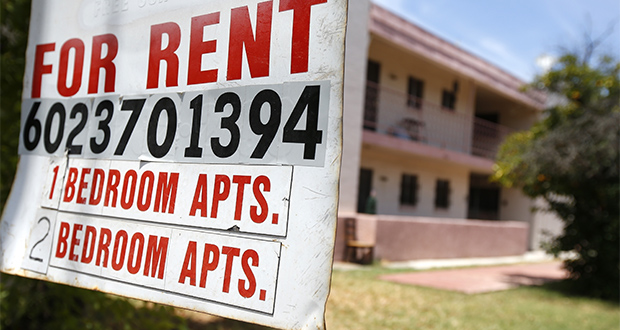Thousands of potential homes exist in downtown Phoenix
Tushar Kansal, Guest Commentary//November 7, 2025//
Thousands of potential homes exist in downtown Phoenix
Tushar Kansal, Guest Commentary//November 7, 2025//

Converting office buildings into apartments sounds like an appealing way to address Phoenix’s housing shortage and downtown office glut simultaneously. It’s terrific when these conversions happen, but it’s time to admit that their high cost makes them a rarity. And there’s something that works far better – converting unused office space into dorm-style housing.
Phoenix needs more housing. The local homelessness rate is 20 per 10,000 residents. Meanwhile, downtown office vacancy averages 23%, with some high-rises sitting empty for years. The good news is dorm-style housing — made up of private micro-apartments with shared kitchens, bathrooms and living spaces — can be built for less than converting offices into regular apartments. For example, a micro-apartment in an existing building in Phoenix would cost approximately $169,000 compared to roughly $300,000 to build a studio apartment in the same building. Rents would be lower too: around $850 per month, including utilities for a furnished unit, which is well below Phoenix’s median monthly rent of $1,385. So, these units would be affordable to someone earning under $40,000 a year or roughly 43% of the area’s median income.
That’s significant in a state where rents have soared in the past seven years. Restaurant workers, retail employees, university students, early-career teachers, and hospital workers often struggle with housing costs in metro Phoenix. Universities could lease entire floors for dorm space. Hospitals could house traveling medical staff. Employers could lease floors to attract workers.
New research from The Pew Charitable Trusts and the architectural firm Gensler examined the viability of office-to-co-living conversions in cities, including Phoenix. The key to making these conversions financially viable is leaving in place the existing plumbing. That means kitchens, laundry, and bathrooms would be shared, as they are in college dorms. Daily cleaning of these shared spaces and 24-hour security are covered in the projected operating costs. Residents would have keycard access only to their floor.
This housing option would suit Phoenix’s growing population of young workers, students and service employees. Having smaller, more efficient layouts means 600 units would fit over 12 residential floors, compared with 200 for regular apartments.
Phoenix offers key advantages for dorm-style housing. The city has flexible parking requirements near transit stops so builders aren’t required to include parking spaces that residents may not want but would be required to pay for through higher rent. Recent building code updates allow office-to-residential conversions without rezoning and don’t cap how many apartments are allowed in a building downtown. And Arizona’s new adaptive reuse legislation requires at least 10% of units be designated for low- or moderate-income residents — a standard this co-living concept easily meets.
But the financials to convert vacant office space into dorm-style housing don’t work unless there are government subsidies to help with the construction costs. Research suggests a one-time upfront subsidy of about $85,000 per unit would be needed. A similarly affordable new studio apartment would require a subsidy of about $215,000. So, the same $25 million in public support could produce 294 co-living units compared to only 116 studio apartments — roughly two and a half times as many homes.
Phoenix already has programs that could support this development, including the city’s Adaptive Reuse Program and the Housing Solutions Plan adopted in August 2025.
The U.S. housing shortage requires new solutions. For thousands of Phoenix-area residents priced out of the market, downtown dorm-style units would be a game-changing option. And bringing 600 new residents into a converted building would help revitalize downtown Phoenix by supporting nearby businesses with potential employees and customers.
With this model, Phoenix could become a national leader for cost-effective office-to-residential conversions, creating modern, affordable homes in the heart of the city.
Tushar Kansal works on The Pew Charitable Trusts’ housing policy initiative.














































